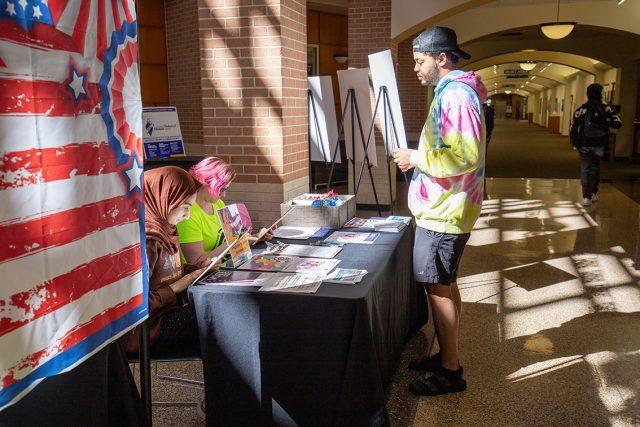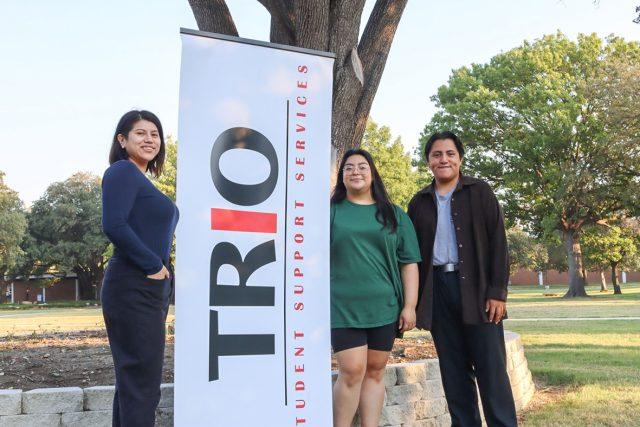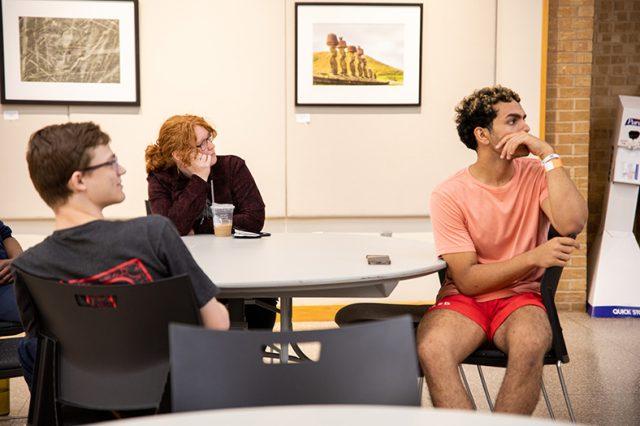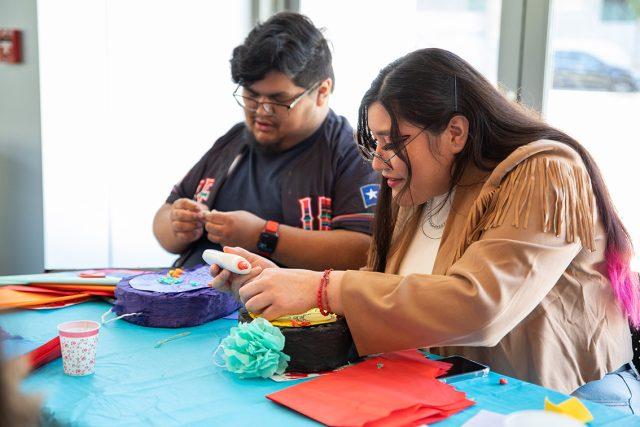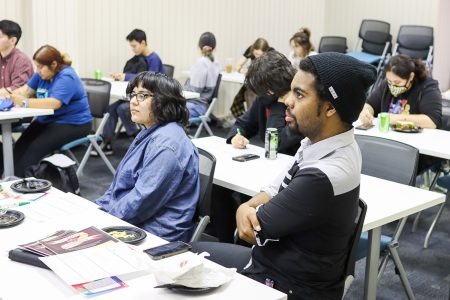
LGBTQIA Identity 101 event at the South Campus.
Ariel Desantiago/The Collegian
IRENE DOMINGUEZ
campus editor
irene.dominguez370@my.tccd.edu
The Prism Student Organization on South campus hosted an event Oct. 5 to discuss LGBTQ Identity and terminology.
One goal of Prism is to educate on sexual orientation and gender identity factors. The event was held as an informational session with different aspects of LGBTQ vocabulary being explained.
There were 18 different LGBTQIA+ identities discussed at the event. Pansexual, nonbinary, aroace or agender, these are just a few terms used to describe LGBTQ identity and these were some of the ones they talked about.
South campus counseling director Andrew Hill is the advisor over the Prism club. He wants to help students better understand LGBTQIA+ terminology.
“Culturally or socially people decide what gender means,” he said.
He says awareness could help those uncertain about their gender identity, sexual or romantic orientation.
South Campus student Savannah Lewis said, “I didn’t know that intersex was also part of this.”
She said she learned what the ‘I’ in LGBTQIA+ stands for in the acronym.
Common terms used within the LGBTQ community were also discussed at length. These terms make clear how being closeted, misgendered or having a deadname could affect an individual.
“Each person’s experience is theirs and theirs alone,” Austin Marin, a South campus student who is part of Prism said.
He explained this is why it is important to respect how someone identifies themselves.
“A person’s expression does not always have anything to do with their gender identity,” Hill said.
The topic of gender expression was also discussed amongst the group.
“A person’s clothing might have nothing to do with their gender identity,” Hill said.
Hill also delved into the history of pronouns and why they have evolved through time.
“Pronouns used to be neutral,” Hill said.
He also said that western society grew to want things to be more traditional when it came to gender roles, they started using binary pronouns.
Marin explained the concept of misgendering or not using a person’s preferred pronoun and how that can add to gender dysphoria.
Deadnames were also spoken about. This is when an individual chooses to not go by their birth name anymore, either because they are transgender or non-binary.
Hill took questions from the audience about how to navigate certain situations concerning respect not being given to individuals chosen identity. Students were able to share stories from their own lives or ask for advice.
“Something that I really appreciated was just the safe space that was created here. People were able to open up and share their experiences,” SE Campus student Connor Quinonez said.
He said it was very important that people could talk about their concerns or feelings so they could better themselves.
“There are a plethora of resources out there,” Marin said.
Marin continued that if people wanted to know more about gender identity and sexual orientation they can get the help they need. He suggested Equality Texas or LGBTQ Saves.
Hill said elected officials have the power to influence the lives of LGBTQ students. He reminded the students to get registered to vote and get involved so they could improve policy that could have an effect on the LGBTQ community.
“School board positions as well as other influential offices here are voted positions,” Hill said.
Hill also said LBGTQ people are in control of what terms are used to describe their sexual identity and orientation. He added that there would always be continued change in LGBTQ identity.
“The conversation was not a beginning or an end, but an ongoing conversation,” he said.


























